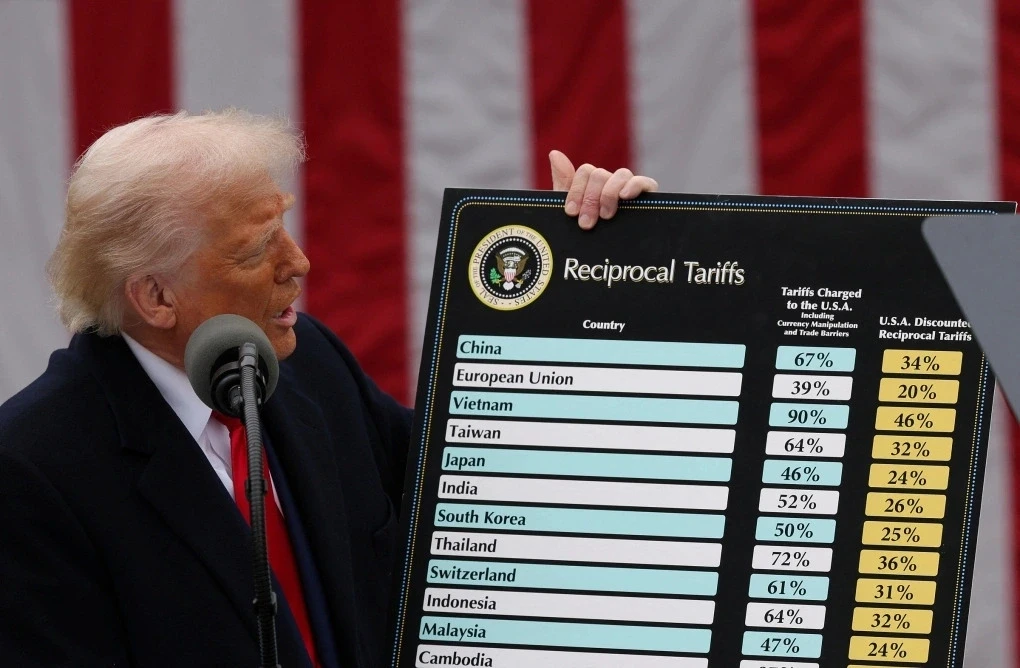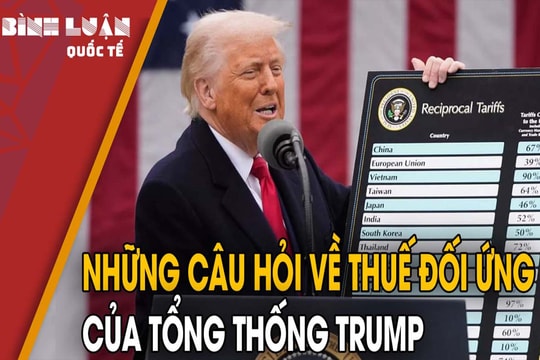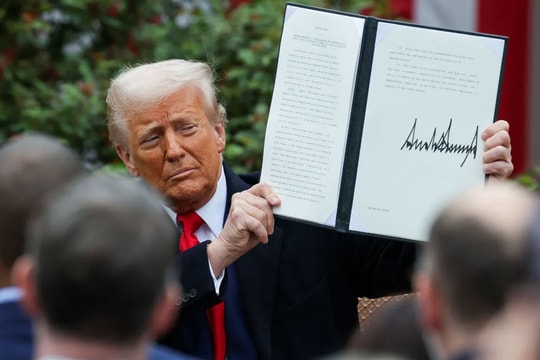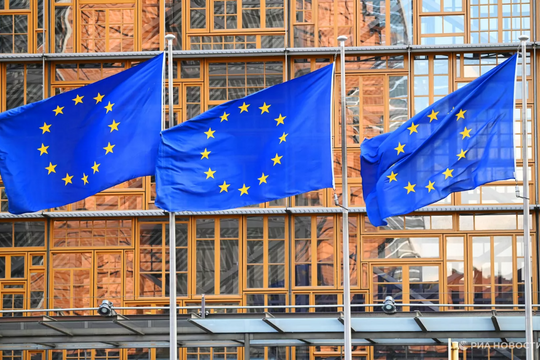Tariff 'gamble' poses political risks for Mr. Trump?
Call it “Liberation Day,” but President Donald Trump’s April 2 announcement of reciprocal tariffs could create political headwinds for his party and economic pain for his base if his promises to overhaul the U.S. economy don’t materialize.
Tariff “Liberation Day”

According to Reuters, experts say it will take years to restore manufacturing in the US, change supply chains and bring production back to the country - goals that Mr. Trump - President from the Republican Party and his supporters hope to achieve through tariff policy.
In the meantime, consumers could face higher prices, the economy could slip into recession, and allies could impose retaliatory tariffs on American goods — consequences that Mr. Trump has called “disruptive,” but voters may not be ready to accept, with midterm elections looming next year.
Mr Trump’s Republicans control the House and Senate by narrow margins. If the damage from tariffs leads to a midterm election defeat, control of one or both chambers could fall to the opposition Democrats.
“He has a very high tolerance for pressure, but that could translate into real pain at the polls in November 2026,” said Mike Dubke, former communications director for President Trump during his first term. “The concern is, when will we see the benefits that he and his advisers believe will come? Because he has only 18 months before the midterm elections.”
Economists say tariffs are essentially a tax on consumers, and according to a Reuters/Ipsos poll, a majority of Americans – 70%, including 62% of Republicans – believe that raising tariffs would increase the price of food and other consumer goods.
About 53% of survey respondents agreed that raising tariffs would do more harm than good, while 31% disagreed. The remainder were unsure or did not give an answer.
Only 31% of respondents agreed that US workers would benefit from tariffs on imported goods, while 48% disagreed.
“The main risk right now is economic,” said Lanhee Chen, a fellow at the Hoover Institution and former adviser to Republican leaders Mitt Romney and Marco Rubio, referring to tariff policy.
“One of the immediate risks is prices, and what that means for a president who was elected on a promise to lower consumer prices,” he said.
Another risk is the possibility of the economy entering a recession,” Mr. Chen said, warning that describing the economic impact was speculative and expressing support for using tariffs as a public policy tool.
Mr Trump promised during his presidential campaign to bring prices down, and voter concerns about inflation have put his 2024 opponent, former Vice President Kamala Harris, at a disadvantage.
On April 2, Mr. Trump announced that the new tariffs, including 34% on Chinese goods (in addition to the 20% already applied), and 20% on goods from the European Union, would fill the US treasury.
“Now is the time for us to prosper, and then use trillions of dollars to cut taxes and pay down the debt – and it will all happen very quickly,” he said.
However, tariffs are paid by US importers, not exporting countries, and these increased costs are often passed on to consumers.
Election risks
Signs of discontent with Mr. Trump are beginning to appear within the Republican Party.
Republicans won two special elections in Florida on April 1, but by much smaller margins than Mr. Trump won there last year. In Wisconsin — a key swing state that Mr. Trump won — a liberal candidate won a seat on the state Supreme Court, in what was seen as a rebuke to Mr. Trump and his billionaire adviser, Elon Musk.
The US Senate on April 2 passed a bill to end new tariffs on Canada by a vote of 51-48, with four Republicans supporting it. On April 3, one of those four and a senior Democrat introduced a bill to limit Mr. Trump’s ability to impose tariffs. However, both bills are likely to fail in the House of Representatives.
Trump’s tariff announcement sent US and global stock markets tumbling, a move the US president largely dismissed on April 3. “The market will explode, the stocks will soar, the country will thrive, and the rest of the world will find a way to make a deal,” he told reporters at the White House.
“Liberation Day seems to be about freeing American businesses and consumers from their money,” said a former Republican congressional aide who asked not to be named. “You can’t stop an aircraft carrier overnight, and you can’t reshape the entire global economy in a day.”
The White House, which blames inflation on former President Joe Biden, says the Trump administration is doing everything it can to lower the cost of living and dismisses concerns about the political fallout from his trade policies.
“President Trump’s single most important priority is the well-being of the American people. His historic trade actions… reflect his commitment to restoring American greatness for our industries and workers – not to engage in meaningless political rhetoric,” White House spokesman Kush Desai said.
Mr. Biden, a Democrat, has also sought to boost domestic production and manufacturing through three landmark bills totaling trillions of dollars to rebuild America’s infrastructure and encourage investment in strategic sectors such as semiconductor manufacturing, energy and electric vehicles.
Democrats are likely to attack Republicans over the economic impact of tariffs.
The strong economy Mr Trump inherited from Mr Biden – with growth near 3% in 2024, unemployment around 4% and inflation below 3% – is showing signs of weakening, although the “hard” data economists use to measure it, such as gross domestic product (GDP) and employment, has not yet shown clear evidence of a near-term downturn.
However, surveys measuring confidence in the economic outlook among households and businesses have fallen sharply in the past two months since Trump began pushing his tariff policies, in stark contrast to the optimistic atmosphere when he was elected in November.
“From a political risk perspective, this is a really bad idea,” said Philip Luck, director of the economics program at the Center for Strategic and International Studies and a former deputy chief economist at the State Department under Mr. Biden, noting the potential for retaliation from America’s trading partners.
Barbara Trish, a political science professor at Grinnell College in Iowa, said Trump faces significant voter anxiety, but he has previously avoided serious criticism.
“How many times have observers actually thought, OK, this is going to be the last straw, the Teflon coating is finally going to be scratched – and then it doesn’t happen?” she said.
Small business owners have mixed reactions.
In Baltimore, a traditionally Democratic city, Drew Greenblatt, owner of Marlin Steel, said Trump's tariffs are helping to boost orders as customers shift to products made in the United States.
But Michelle Lim Warner, owner of the DCanter wine shop in Washington, DC, is more pessimistic. European wines make up two-thirds of her inventory, she says: “Who would pay $75 for a bottle of wine that used to cost $25?”




.jpg)


